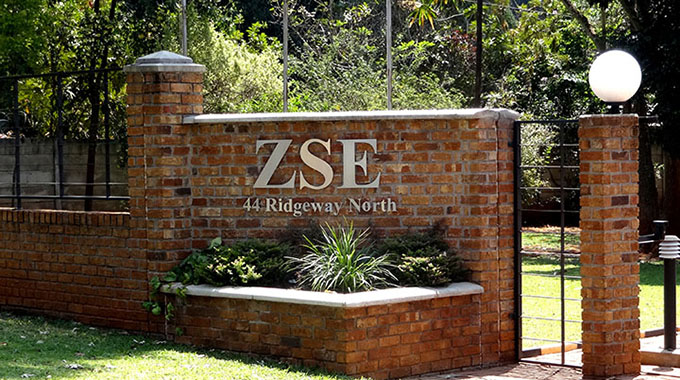‘Illegal sanctions hurting business, economy’

Golden Sibanda and Michael Tome
CAPTAINS of industry and economic analysts are unanimous that sanctions have had an overly distressing effect on the viability of business entities and the wider Zimbabwean economy.
While the US, which uses its might as a military and economic super power to impose its foreign policy and dominion on sovereign nations, claims sanctions are targeted and not harmful to the economy, the truth of the matter is that the embargoes have had existential negative effect on virtually all economic agents, especially by blocking access to credit and investment.
For instance, the US secretary of the Treasury directed the US executive director of each international financial institution to “oppose and vote against” allowing any extension by the respective institution any loan credit or guarantee to the Government of Zimbabwe.
Zimbabwean financial institutions that include CBZ Bank (US$385 million), Standard Chartered Zimbabwe (US$18 million), have been penalised by the US for facilitating transactions for or on behalf of designated people or companies under sanctions. In fact, CBZ Bank had initially been fined US$3,8 billion before the heavy penalty was reduced on mitigation.
The economic embargoes alienated Zimbabwe from global financial sources as they outlaw business transactions with local person and entities while anyone caught violating the law is subjected to some very harsh punitive measures.
Global financial giants such as Standard Chartered Plc and Barclays Plc are cases in point after they were slapped with heavy penalties running in several hundreds of millions of dollars or even billions of dollars for violating US and British sanctions orders.
The US imposed sanctions on Zimbabwe in 2001 through the Zimbabwe Democracy and Economic Recovery Act (Zidera), amended in 2018, and backed by the Executive Order 13288 of 2203, which is renewed annually by the US President.
Supported by Congressional law, the economic embargo empowers the US’ Office of Foreign Assets Control (Ofac) to seize any assets or financial proceeds meant or belonging to any person listed as designated individual or entity.
In fact, Zidera gives the US far-reaching powers to terminate or abrogate contracts, proscribe licence relationships or cancel business agreements, block and freeze funds or cause the cutting of correspondent banking relationships among others.
EU’s sanctions on Zimbabwe were first imposed in 2002 by Common Position 2002/145/CFSP. The sanctions, which do not have United Nations’ blessings, comprised an arms embargo, an asset freeze and travel ban on targeted people and entities.
The current EU sanctions regime was imposed pursuant to Council Regulation (EC) No 314/2004 (as amended) and Council Decision 2011/101/CFSP (as amended), and likewise consists of an arms embargo and targeted asset freezes and travel bans.
The Reserve Bank of Zimbabwe says economic sanctions on Zimbabwe have resulted in the drying up of project finances and balance of payments support, with far reaching consequences on the majority of the people through collapsed service delivery, industries and infrastructure.
Industry executives and a cross section of stakeholders are unanimous that other challenges notwithstanding, the illegal sanctions have harmed businesses and the economy by choking lines of credit, foreign investment and development support.
The sentiments from business come at a time when the Government is on an anti-sanctions campaign backed by other African countries with an anti-sanctions march scheduled for today.
After Sadc countries declared October 25 as the SADC Anti-sanctions day, during the 39th Sadc Summit of the Heads of State and Government held in Tanzania in August, Government this week declared the day a national holiday.
Zimbabwe has been reeling under the brunt of the ruinous western sanctions since the turn of the century over its decision to redistribute prime agricultural land to the landless black majority.
On the back of the sanctions inspired economic precipice, industry’s capacity utilisation has plummeted, averaging 42 percent as of November last year, according to CZI.
The economic meltdown, largely emanating from effect of sanctions, decimated the country’s gross domestic product (GDP) by an estimated 50 percent in the decade to 2008.
In a telephone interview, National Business Council of Zimbabwe (NBCZ) president Langton Mabhanga, said that sanctions had generally squeezed the whole economic environment, thereby presenting countless macro and micro economic challenges.
“The financial service sector has been badly hit by sanctions, international loans are coming at very high interest rates owing to the undesirable high country risk tag on Zimbabwe, (scaring away) foreign capital, leading to stagnation of the economy,” he said.
Additionally, Mr Mabhanga noted that the economic embargoes had caused the country to lag behind in terms of industrial revolution principally caused by the inability of local firms to acquire new machinery from technologically advanced countries.
He said sanctions restricted Zimbabwean firms from using normal trade channels prompting several firms to export through intermediaries, a process he deemed expensive.
“Companies are failing to transact directly with some overseas customers leading to transactions via numerous go-betweens resulting in unbearable premiums.
Sanctions “have led to deindustrialisation of the local industry through failure to obtain better equipment from advanced countries like the USA itself,” Mr Mbhanga added.
Confederation of Zimbabwe Industries (CZI) president Henry Ruzvidzo shared the same sentiments saying that the sanctions have had negative bearing on the entire economy.
“The whole economy has been hit hard by sanctions, they have created an unstable macroeconomic environment for the industry and there is so much instability in the economy resultant of the embargo.
“The financial service sector operations in-particular are experiencing serious difficulties when it comes to correspondence banking,” said the CZI president said.
Weighing in on the same issue CZI past president and United Refineries chief executive Busisa Moyo, said sanctions had spawned harsh economic conditions inimical to economic growth, consequently rendering locally produced goods uncompetitive.
“The biggest effect of sanctions would be the country risk premium . . . not all of it is to do with sanctions, but a significant part is.
“The fact that raising loans, the risk premium — in US dollar terms is very large and then you end up with effective (interest) rates of 18 percent lending rates — a large chunk of that between 10 percent and 12 percent is premium for country risk.
“The opportunities for expansion are then limited, access to finance is limited and then you have uncompetitiveness and the rest becomes a destructive cycle , which sanctions are at the centre of,” he said.
Mr Moyo went on to outline some businesses that were crippled as a result of the sanctions. He said, “You know some of the IDC companies were affected, they didn’t close down but Chemplex was affected and permanently impaired and up to now really struggling. Zimphos were not able to retool; they were not able to participate. ZB Bank which came off, Agribank those have subsequently been removed but the effects of having had them there for nine or so years, some of them more – 12 years, it has had huge consequences.
“And there are many smaller companies that were supporting these companies that obviously went out of business, had to retrench as a result of sanctions,” Mr Moyo said.
Due to Zidera, Zimbabwe has been unable to participate in programmes created by the International Bank for Reconstruction and Development and IMF fund programmes to assist in the transformation and resuscitation of the Zimbabwean economy.
By September 2000, the International Development Association (World Bank arm) suspended all funds to the Government of Zimbabwe for ongoing projects. The United States has also imposed sanctioned individuals or organised discovered to be cooperating or assisting Zimbabwe in ways that help to sustain the economy and political persons specified by Washington.
Zimbabwean entities that have either been affected by sanctions or lost money on it include Agribank, Infrastructure Development Bank of Zimbabwe, Minerals Marketing Corporation of Zimbabwe, ZB Financial Holdings, Intermarket Holdings, Zisco, Zimbabwe Defence Industries and Oryx Diamonds, IDC and SMEDCO among others.











Comments